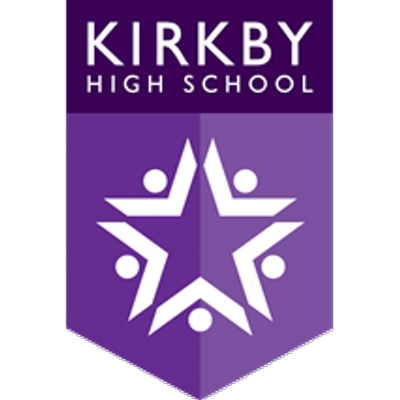What is Literacy?
Literacy is categorised into four key areas: the ability to read, write, speak, and listen. Literacy gives us the fundament skills to communicate with the world.
But it’s not as simple as it sounds. Literacy skills vary across different cultures and contexts and as the world adapts, so do we. Different cultures will have different perceptions of literacy. Students need literacy to engage with current events, communicate effectively, and understand the issues that are shaping our world.
Therefore, at Kirkby High School we ensure that literacy at the core of all learning in the curriculum, not just in English lessons. For example, we know that some children who struggle with science do not lack scientific knowledge but instead they have not built up the necessary reading skills to understand what the question is asking them to do.
To ensure we bridge any gaps, at Kirkby High School, we pledge to give your child the knowledge, resources, and opportunities to progress within their literacy skills.
| When do we use literacy? |
Examples |
| At Work |
Communicating, presenting, note-taking, teamwork, computing, leadership skills, writing reports. |
| In practical everyday activities at home and beyond |
Books, newspapers, magazines, timetables, DVDs, television and radio programs, signs, maps, conversations, and instructions. |
| As parents |
Helping children with their homework, encouraging reading for pleasure (and reading with children), storytelling, reciting, vocabulary games, rhyming. |
| In the wider world |
Text messages, social media, blogs, web pages. |
|
What are we doing at Kirkby High School?
Every student completes literacy themed activities during form time each week. This is in addition to the literacy that forms part of the English curriculum and the literacy found across all subjects.
Students are challenged each week in a series of spelling, punctuation, grammar, vocabulary, comprehension, and oracy activities. Currently, students are leading their literacy form sessions to develop their Oracy skills, inspired by Voice21 (a charity that empowers high level oracy skills). The literacy sessions led by the students discuss the weekly Collective Worship theme. |
The Power of Reading
Reading is fundamental to a student's development within literacy skills. But, more importantly, reading allows students to delve into fictional worlds beyond their imaginations or broaden their horizons on the world we live in. At Kirkby High School, we encourage our students to make the most out of the brilliant reading base that has a range of fiction and non-fiction texts. We host book fairs, run regular competitions, and take part in reading events (World Book Day, Shakespeare Day, Poetry Day).
During a very tough year, all students received a brand-new fiction book from the school. They were given the choice of three options that were suitable for their age group. Not only was this a fantastic opportunity to get students reading but students were also able to take part in competitions and activities. Due to its success, we hope to provide more opportunities for this in the future. |
Help and Support
The first point of contact is your child’s form tutor or English teacher.
Some pupils receive additional support from the inclusion department after they have been identified through various assessments.
Help and support doesn’t stop with the pupils. 1 in 6 adults in England, 7.1 million people, have very low literacy skills as defined by the UK National Literacy Trust. That's 16.4% of the population. If you identify with this statement or struggle to help your child with their homework, then the National Literacy Trust provide information on this by visiting their website below.
https://literacytrust.org.uk/parents-and-families/adult-literacy/ |
